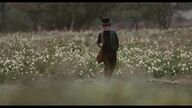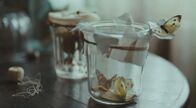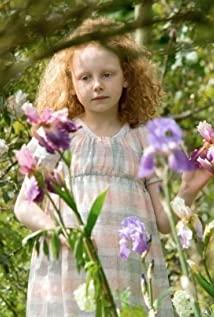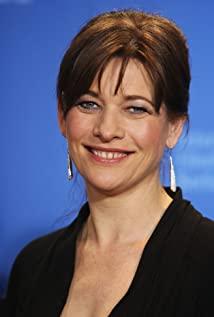He was melancholy, sensitive, poor, humble, vulnerable, caring for his sick younger brother, and longing for a flash of inspiration. She's young, innocent, stylish, makes one-of-a-kind dresses with triple lace pleats, and likes smart men. She was drawn to the lines in his non-selling collection of poems. "Beauty is an eternal joy that only grows, never dies and annihilates."
She said, "Can you teach me to write poems? I want to read them."
He was happy with her, and Christmas Eve, he even danced Tap dance.
So, he began to teach her to write poetry seriously, "Poetry requires sensory experience, plunge into the lake. It's not to swim into the lake immediately, but to be in the water and enjoy it to the fullest. You don't need to understand the lake..."
The silhouette of her sitting by the window while reading poetry and teasing the cat is really beautiful.
They are separated by a wall. He knocked on the closet door, and she responded. Two people leaning on either side of a wall, closing their eyes and listening to each other's heartbeat - if that's not love.
They communicated, and every word was full of the warmest emotions, and they were sealed with kisses, as if the sentences of the whole world could not express.
"I love you more and more, because your love is pure."
Those sweet tortures, throbbing, torment, aftertaste, missing.
And in the face of death, that deep powerlessness.
On the night before parting, he cut a lock of her hair and put it into his collection of poems.
This love is so difficult that she treats it as her life's work. When she heard the news of his death, she couldn't help herself in pain, and burst into tears, almost suffocating. She cut her hair, wore black, and would bury the name in her life—Keats, her love.
The lines are beautiful, like:
"Would you like to walk along the lake or through the woods? I've explored more trails here than your eyelashes."
"The poet is far from poetry, he is the least poetic being."
"Then pretend that I will come back in spring." "You will come back."
...
and the poem he wrote for her: The bright star is
bright the star! I pray to be as steadfast as you -
but I do not wish to hang high in the night sky, alone, with eyes open forever,
like the patient, sleepless hermit of nature,
constantly looking at the surging sea, the earthly priest,
washed with holy water The shore where man dwells,
or stares at the fluttering snow, like a veil,
bright and light, covered with depressions and mountains--
oh, no,--I only wish to rest my head firmly on my
lover's soft breast Up,
always feel it descend and rise soothingly;
and wake up, my heart is full of sweet excitement,
constantly, constantly listening to her delicate breathing,
just live like this, or die in a coma.
View more about Bright Star reviews











